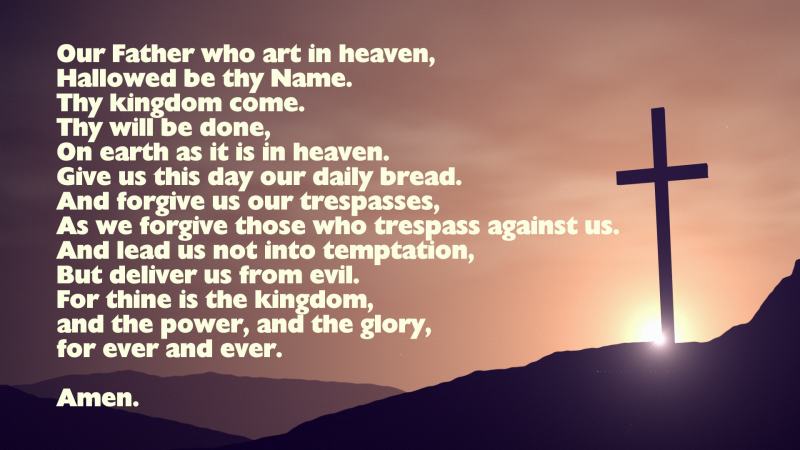"The Power and The Glory"
Commentary on the Lord's Prayer
This section is a line-by-line exploration of the Lord's Prayer through the writings of famous theological commentators.
"The power and the glory" is part of the doxology that falls at the end of the Lord's prayer.
Adam Clarke
on "The Power and the Glory"
By power, that energy by which the kingdom is governed and maintained.
By glory, the honour that shall redound to God in consequence of the maintenance of the kingdom of grace, in the salvation of men.
Source: Adam Clarke's Commentary on the Bible
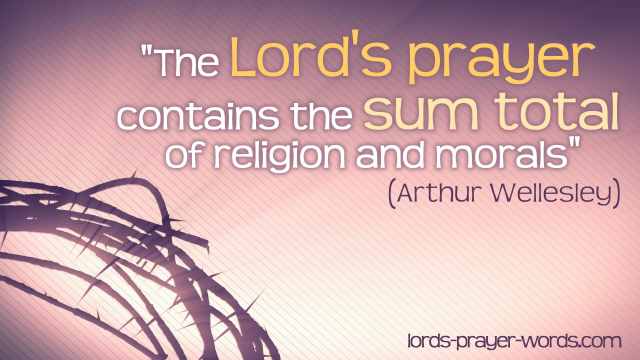
resources on this page
Adam Clarke's on "The power..."
Albert Barnes on "The power..."
(Commentary on Matthew chapter 6, verse 13)
read more commentaries and studies on the Lord's Prayer in our In-Depth Commentary Section
Matthew Henry on "The Power And The Glory"
2. It is a form of praise and thanksgiving. The best pleading with God is praising of him; it is the way to obtain further mercy, as it qualifies us to receive it. In all our addresses to God, it is fit that praise should have a considerable share, for praise becometh the saints; they are to be our God for a name and for a praise. It is just and equal; we praise God, and give him glory, not because he needs it--he is praised by a world of angels, but because he deserves it; and it is our duty to give him glory, in compliance with his design in revealing himself to us. Praise is the work and happiness of heaven; and all that would go to heaven hereafter, must begin their heaven now. Observe, how full this doxology is, The kingdom, and the power, and the glory, it is all thine. Note, It becomes us to be copious in praising God. A true saint never thinks he can speak honourably enough of God: here there should be a gracious fluency, and this for ever. Ascribing glory to God for ever, intimates an acknowledgement, that it is eternally due, and an earnest desire to be eternally doing it, with angels and saints above, Ps 71:14.
Source: Matthew Henry's Commentary on the Whole Bible Volume V (Matthew to John)
Thine is the power. Thou hast power to accomplish what we ask. We are weak, and cannot do it; but Thou art almighty, and all things are possible with thee.
Thine is the glory. That is, thine is the honour or praise. Not our honour; but thy glory, thy goodness, will be displayed in providing for our wants; thy power, in defending us; thy praise, in causing thy kingdom to spread through the earth.
Source: Barnes' New Testament Notes
Next: "For ever and ever. Amen."
about the commentary writers
In this section you can discover more about the Lord's Prayer through some of the most notable exponents in biblical interpretation.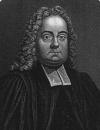 • Matthew Henry (1662-1714) was a non-conformist English clerygman. His commentaries on the scriptures are intended as a devotional guide to the Bible, rather than as a critical study.
• Matthew Henry (1662-1714) was a non-conformist English clerygman. His commentaries on the scriptures are intended as a devotional guide to the Bible, rather than as a critical study.
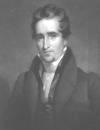 • Albert Barnes (1798-1870) was a Presbyterian minister and American theologian. His 'New Testament Notes' are invaluable in helping to understand difficult passages of scripture. Barnes frequently references the original Greek to reveal the meaning of the text.
• Albert Barnes (1798-1870) was a Presbyterian minister and American theologian. His 'New Testament Notes' are invaluable in helping to understand difficult passages of scripture. Barnes frequently references the original Greek to reveal the meaning of the text.
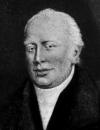 • Adam Clarke (1769 or 62 to 1832) was a Methodist minister and biblical theologian. His extensive commentary on the New Testament, at around 6000 pages long, is one of the longest works on the bible ever written by one person.
• Adam Clarke (1769 or 62 to 1832) was a Methodist minister and biblical theologian. His extensive commentary on the New Testament, at around 6000 pages long, is one of the longest works on the bible ever written by one person.

